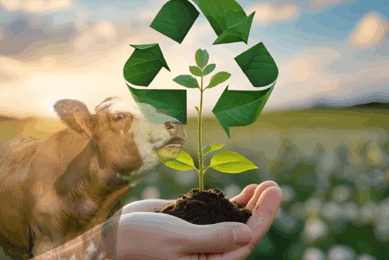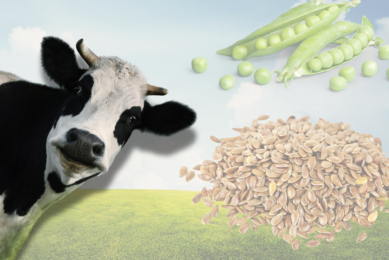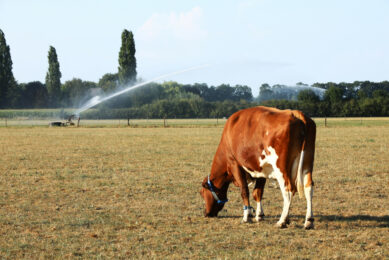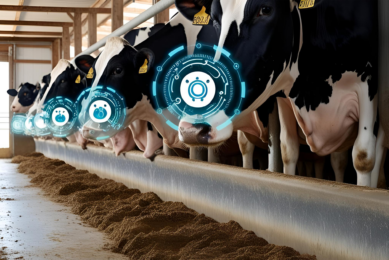UK retail giant to cut its dairy cow emissions
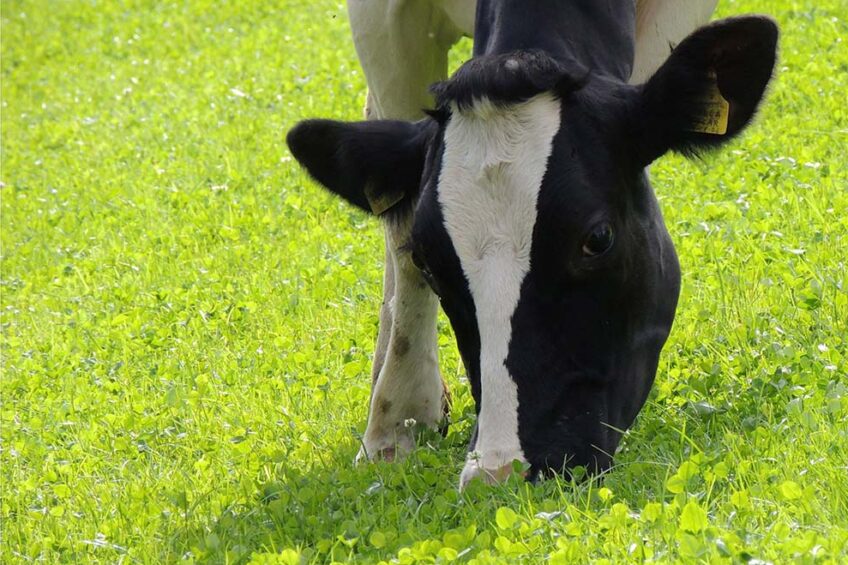
UK supermarket giant Marks & Spencer is investing in a feed additive to reduce the methane production of its pool of dairy farmers.
In what it describes as a first of its kind initiative, the chain is investing £1 million to alter the diets of the cows on all its 40 Marks & Spencer Select Dairy Farmers in its milk pool. These pasture-based cows will be given the Bovaer supplement, from dsm-firmenich, in their feed, which has been researched and proven to cut emissions from cows.
Marks & Spencer says this will remove a projected 11,000 tonnes of greenhouse gas emissions from the atmosphere annually, cutting its RSPCA-assured core fresh milk carbon footprint by 8.4%.
Milk not compromised
The supermarket also confirmed there will be no compromise on milk taste or quality and that it continues to honour its 25-year strong milk pledge, which commits to pay farmers a fair price for the milk they produce.
Just a quarter teaspoon of the Bovaer as a feed additive per cow per day reduces methane emissions from dairy cattle by 30% and up to 45% for beef cattle, on average. Microbes help break down food in a cow’s rumen, which then releases hydrogen and carbon dioxide. An enzyme combines these gases to form methane. By adding the feed additive, it suppresses the enzyme, which creates less methane. As it acts, Bovaer is safely broken down into compounds already naturally present in the rumen.
A spokeswoman from Marks & Spencer said: “The roll out of Bovaer has already started, with all 40 Marks & Spencer Select Dairy Farmers including it in their milking cow feed ration, either incorporated in their mineral blend or compound. Using evidence-based predictions, theoretically modelled using the Marks & Spencer milk pool, we expect that the inclusion of Bovaer will reduce the carbon footprint of the milk pool by 8.4% which equates to 11,000 tonnes of greenhouse gas emissions.”
Climate change
“There is strong scientific evidence supporting the efficacy of Bovaer, which is publicly available,” she said, adding that studies have been conducted both in Europe and respected British academic institutions.
“Today the focus for Marks & Spencer is on becoming a net zero business across all its operations and entire value chain by 2040. The brand’s strength in supplier partnerships and innovation position it well to drive big changes through collaboration with suppliers and partners, recognising that no one can deliver net zero on their own,” she continued.
Stuart Machin, Marks & Spencer CEO: “I talk a lot about the magic of Marks & Spencer and a key part of this is our commitment to innovation. It’s in our DNA and, along with our unique model of own brand, long term supplier partnerships, it’s how we deliver the quality and trust our customers expect from us.”
He added: “By turning our obsession with innovation towards climate change and tapping into the entrepreneurial spirit of our suppliers we can turbo charge our drive to be a net zero business across all our operations and entire supply chain by 2040. I’m excited by the big difference these small changes could make to some of the toughest climate challenges we face.”
Join 13,000+ subscribers
Subscribe to our newsletter to stay updated about all the need-to-know content in the dairy sector, two times a week.



